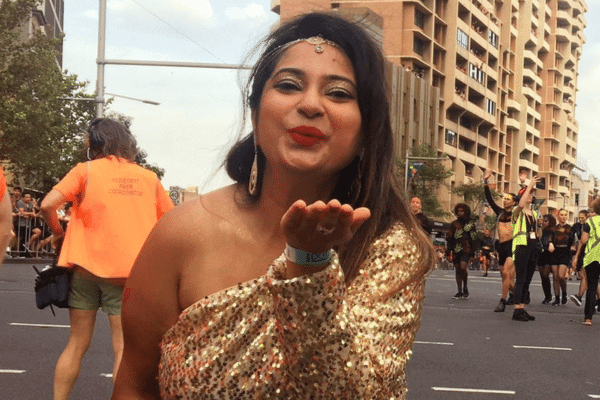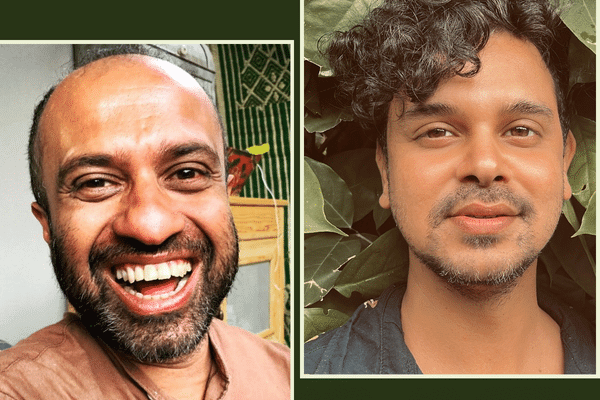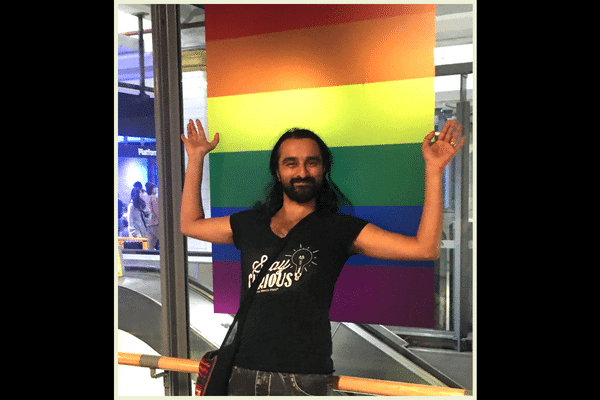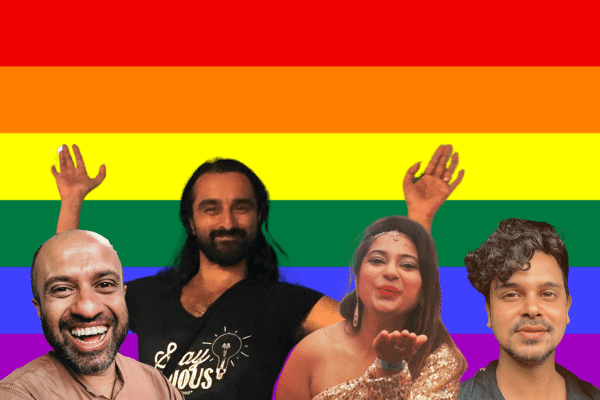Sydney’s Gay and Lesbian Mardi Gras parade on Sat 2 March is upon us. Both the parade as well as the lead-up provide an opportunity for LGBTQIA+ people across Australia to affirm their identities and be seen and celebrated for who they are.
The rainbow alphabet and its shades
For those who are unaware, the umbrella acronym LGBTQIA stands for Lesbian, Gay, Bisexual, Transgender, Queer (which is confusingly often used in place of the whole acronym!), Intersex and Asexual. As many would have observed, over the years there have been a number of variations on this “rainbow alphabet”. In recognition of this continual evolution a “+” is often added to the end. While it’s challenging to keep up with all of the different categorisations (and pronouns), learning how to use them correctly is a great way to show solidarity and care.

Getting into the Mardi Gras spirit
A handful of out and proud fellow South Asian queers, many members of Trikone South Asian queer community support group, share what Mardi Gras means to them.
Sneha Sobti, a storyteller, changemaker and queer South Asian woman living on Gadigal lands, says marching in the 2020 Mardi Gras changed her world. “Seeing people cheer me on for my true self while wearing my ethnic lehenga on the streets of Sydney, I embraced my identities of being queer and a South Asian woman completely.”
Sydney-based Tamil creative artist and gay man Jiva Parthipan fondly recalls first attending the parade in 2005 when visiting Australia from the UK in beautiful weather and light which inspired his move to Australia. Over decades Jiva, now almost 50, has witnessed the blossoming of a young South Asian queer diaspora much more “comfortable in our own skin”. He’s particularly fascinated seeing more young people reconciling their sexuality and religious identities than in the past.

Adish Jain, who is gay and gender fluid, one of Trikone’s directors (also lead actor in their 2023 sold out production Sunderella), views Mardi Gras as a “festival of joy, representation and pride, which symbolises strength within the LGBTQIA+ community, showcasing unity and the diverse spectrum of our identities”.
Meanwhile, for Alan Maurice, Trikone’s founder, it’s about “freedom and fierce pride in a community who have fought through decades of oppression and violence”.
The long road of LGBTQIA+ justice
While an immense amount has changed in society in terms of LGBTIQIA+ rights and freedoms in recent times, the good news needs to be put in perspective with how far there is to go.
Same-sex marriage is now legal in a total of 36 countries including Australia. Still, no South Asian countries allow it although Nepal is getting close. Though India’s Supreme Court verdict in 2023 allowed constitutional protection for same-sex relationships it failed to grant legal recognition to same-sex marriages.
In terms of transgender rights, 20 countries allow people to choose one’s gender identity without the need for a judge or medical expert. While Australia and India aren’t among them, Pakistan is, passing a historic bill in 2018. However, that law is now under grave threat of being repealed.
Hence, the gains in LGBTQIA+ freedoms can never be taken for granted. In fact, there are still 65 countries where it’s a criminal offence to engage in same sex sexual activity, not to mention discrimination, social pressures and violence. In that light, amidst the pro-corporate pinkwashing which tends to dominate today’s Mardi Gras, it’s vital to recall the parade’s origin as a radical protest march in 1978 at a time when homosexuality was criminal in Australia, a situation which only changed across the whole nation by 1997.

Log kya kahenge? “What will people say?”
As South Asians, many of us are accustomed to the spectre of social judgment, the “what will people say”. But this kind of pressure, particularly prevalent in culturally diverse communities, can create trauma for LGBTQIA+ youth coming to terms with their own sexuality and gender identity. Homophobia and transphobia often force young people to live in the closet or repress their own sexual and gender orientation. Discrimination and stigma can lead to depression and suicide, with LGBTQIA+ youth in Australia five times more likely to attempt suicide than the national average.
Good news is that a loving and accepting family can make a huge difference for young queer people, providing a crucial safe haven in times of crisis. When family acceptance isn’t possible, close friends become “found family”, a term used by many LGBTQIA+ folk to describe those close friends who have stepped up to provide much needed support often in the place of family. Support organisations such as Trikone, QLife and ACON can also play a significant role.
Logon ka kaam hai kehna. “People will make it their business to comment”
Adish Jain hopes young people can be more confident to accept who they are. “Don’t feel pressured to keep your parents happy or do something under social pressure,” Adish says, wishing that when parents say Log kya kahenge, young South Asian queers can defiantly respond, Kuch to log kahenge, logon ka kaam hai kehna. “People will talk – they will make it their business to comment”.
Sneha Sobti adds, “For the young ones to feel safe to be themselves, have conversations with broader family which could help provide visibility… learning and remembering our pre-colonial history that celebrated queerness.” This is particularly pertinent given that precolonial South Asian history and literature abounds with stories of love and gender expression which don’t fit the norm.
This Mardi Gras season, I hope that all fellow LGBTQIA+ folks within the Indian-Australian community and beyond, including those on journeys of discovery, will be shown that they are valued and loved for who we are. For everyone else there’s plenty of room to join in the celebrations, reach out as allies in solidarity, and consider what norms we can transcend, and what laws we can change to make the world safer and more inclusive.
READ MORE: Trikone dazzles at Mardi Gras 2021





